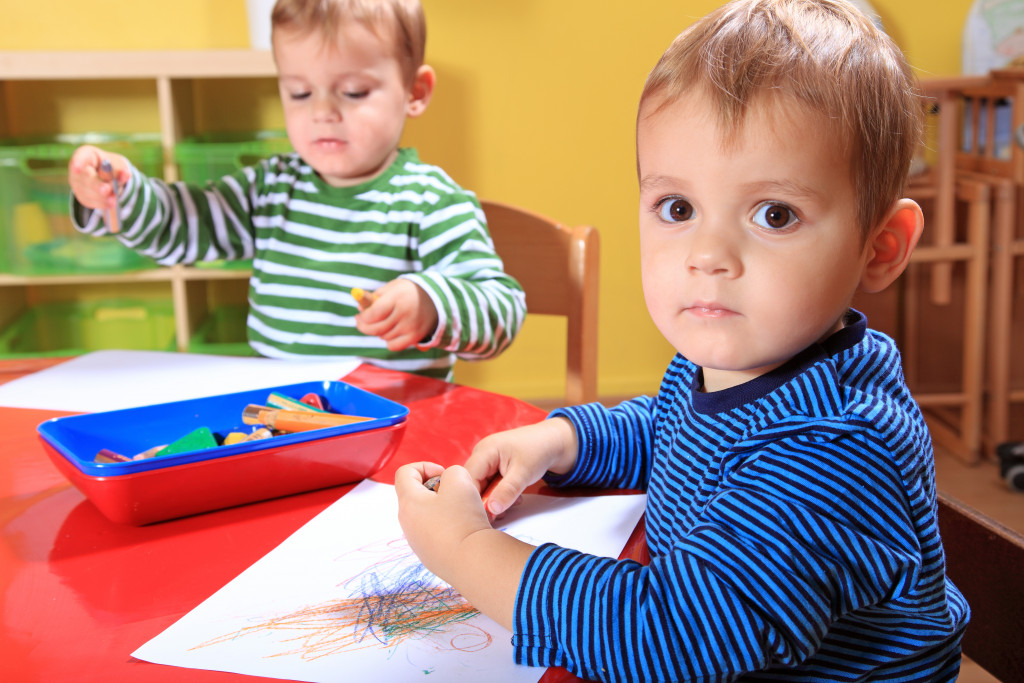- Read to your child to introduce the concept of language and strengthen your bond.
- You need to engage in conversations with your child to help their language development and cognitive growth.
- You need to choose a childcare facility that uses an evidence-based curriculum and knowledgeable staff.
- Support your child’s interests to develop lifelong passions beneficial for education and career.
Congratulations, new parents! Bringing a new life into the world is always a joyous occasion, but it can also be scary and overwhelming, especially regarding your child’s education. As a parent, you want to provide the best for your child, including the best education. But where do you start? This blog will guide you through essential tips to help you start off your child’s education on the right foot.
Read, Read, Read.
One effective way to help your child learn from an early age is by reading to them. It introduces the concept of language and encourages a love of learning. Start with simple board books with colorful illustrations, then gradually introduce more complex reading material.
Not only will it help your child develop their language skills, but it also strengthens your bond with them. Reading with your child also lets you explain the text and discuss what you read together. This helps them understand more and encourages critical thinking.
Engage in Conversation.
It might seem like your newborn is too young to converse with, but simply talking to them helps with their language development. Ask them questions, pause for a response, and listen attentively.
This helps their cognitive development in addition to assisting them in learning a language. Engaging in conversations with your child is also a great way to build trust between parent and child as they grow.
Choose a Good Daycare.

Choosing the right daycare or childcare center is essential for your child’s development. A good childcare center is one that provides a nurturing environment where children can learn, play and grow.
The staff should be experienced, friendly, and knowledgeable in child education and development. They should use a curriculum that is suitable for the age group of the children they are caring for, and it should be based on science-backed evidence to ensure the best learning results.
Support Your Child’s Interests.
Supporting your child’s interests is a vital component of kicking off their education. When parents are responsive to their child’s interests, it can lead to lifelong passions that can benefit their education and future career. Whether it’s art, music, sports, or science, support and encourage their interests.
You can also introduce new activities to your child and encourage them to try something new. This helps foster creativity, problem-solving skills and enhances their ability to learn different concepts quickly.
Create a Learning Environment at Home.
Creating a learning environment at home is essential for a successful start to your child’s education as well. These early years are the most critical for learning, so create an environment that is conducive to education. Here are the steps you need to take to achieve this:
Stock up on educational materials.
Stocking up on educational materials like books, puzzles, and blocks is a great way to create an environment conducive to learning. These materials can help your child develop their language, math, cognitive skills, and more.
Introduce technology.
Technology plays a pivotal role in modern-day education, so it’s important to introduce it early. Invest in appropriate tablets or laptops that have educational apps designed for young children. This can help your child develop their cognitive and technical skills.
Encourage exploration.

Allow your child to explore their environment so that they can learn about the world around them. Provide age-appropriate toys and games which will expand their knowledge and understanding of the world.
Make learning fun.
Learning should be an enjoyable experience for children, not a chore. Create a fun and engaging environment for your child to learn by using interactive activities, games, songs, and stories. You can also take them on excursions to places like libraries, museums, and parks.
Creating a learning environment at home will ensure your child has a solid foundation to build their education.
As a parent, it’s your responsibility to provide the best education possible for your child. The tips outlined in this blog should help you get started on the right foot and create an environment conducive to learning.
From reading with them daily, engaging in conversations, choosing a good daycare center, and supporting their interests, to creating a learning environment at home – these are all essential steps in providing your child with the best start to their education. With enough effort and dedication from you, you can ensure your child has access to quality educational opportunities that will set them up for success later in life.



















